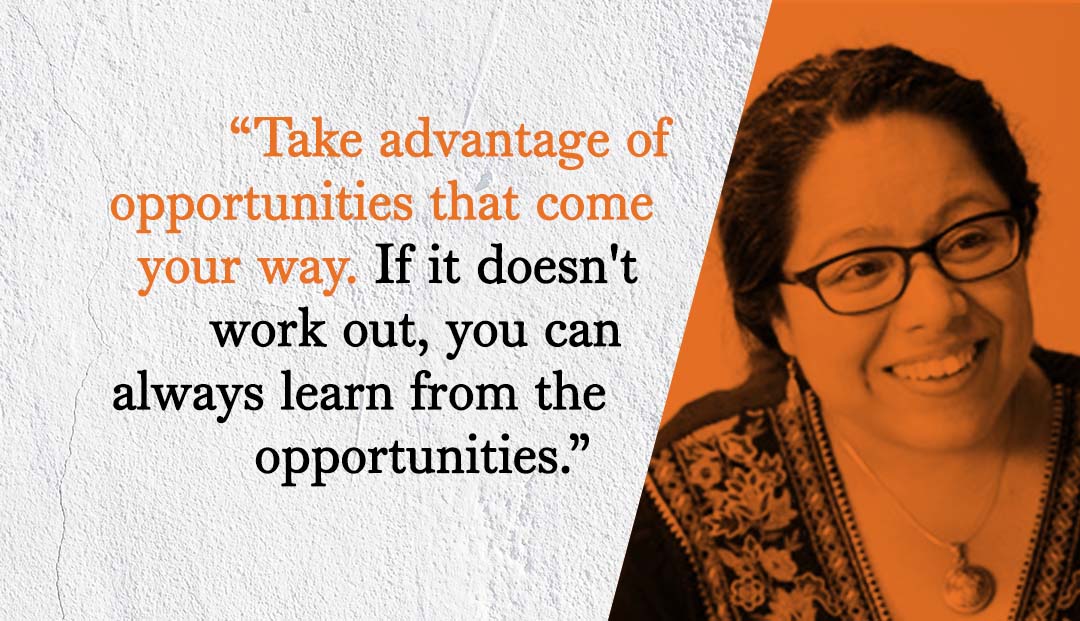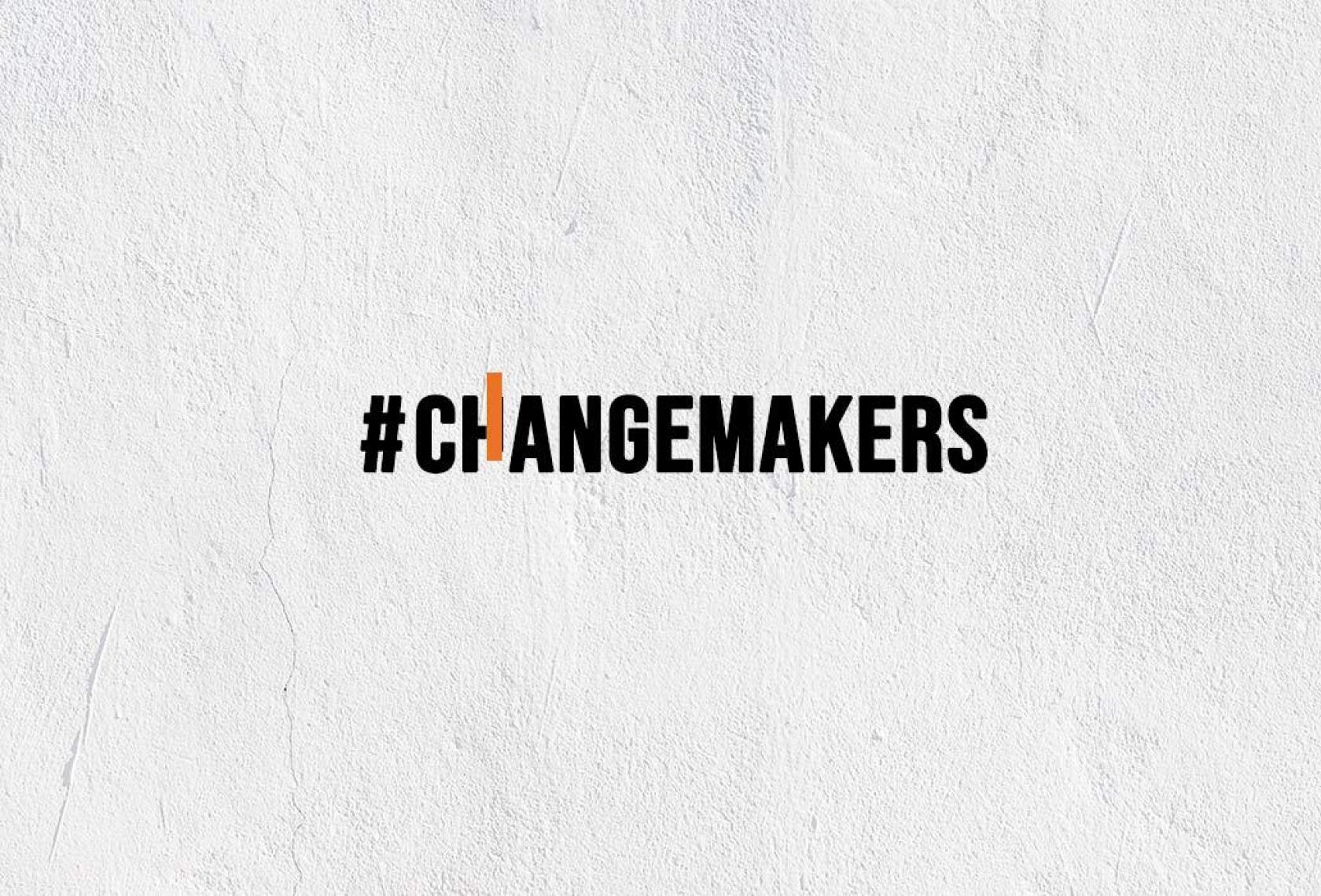Maribel Hernández Rivera MPA ’10 came to the United States, undocumented from Mexico, when she was 13 years old. Since then, she’s dedicated her life to immigration law and policy. Today, she is district director for Rep. Alexandria Ocasio-Cortez (D-NY). She previously served as executive director of legal initiatives for the New York City Mayor’s Office of Immigrant Affairs and as a supervising attorney at Immigrant Justice Corps.
She received her J.D. from New York University School of Law, her Master in Public Affairs from the Princeton School of Public and International Affairs (SPIA, which was then the Woodrow Wilson School), and her A.B. from Harvard University. Upon law school graduation, she served as law clerk to the Hon. Mary M. Schroeder in the U.S. Court of Appeals for the Ninth Circuit.
In this Q&A and bonus podcast below, Hernández Rivera reflects on how her status as a Mexican immigrant shaped her career path to study both immigration law and policy. She emphasizes how the “true and candid” relationships she cultivated during her time at SPIA helped her prepare for each role and the importance of these lasting friendships.
Q: What would you say defines your work?
Hernández Rivera: I have dedicated both my personal life and my career to immigration. I came from Mexico when I was 13, undocumented, and I was here undocumented for a while. Sadly, my father passed when he was undocumented. Immigration is something that really has driven the work that I do to this day.
Q: What is your position in Congresswoman Alexandria Ocasio-Cortez’s office and which projects or initiatives that you’re working on now are you most excited about?
Hernández Rivera: I work as a district director in charge of overseeing our district offices. At the district office, we provide constituent services and represent the office at external events and in the community. About 80% of our casework is immigration related. Previously, I worked as an immigration attorney providing legal services. After that, I worked at the mayor’s office where I created a program to provide immigration legal services. This position is exciting because it allows me to both help provide direct services, because we're liaising with the federal government, while at the same time, I also advise in our office when it comes to immigration policy. In New York City, we are blessed with a plethora of organizations focus on immigration work in an amazing way. We work with them to make sure we are elevating the issues and concerns that they're seeing in the community and in our highly immigrant community in New York. One of our biggest crises is people in Afghanistan trying to leave the country. As a federal office, we communicate with the State Department to try and figure out what can we do to make sure that those refugees get out of there as soon as possible.
Q. Did you imagine you would be in such a role when you were a young woman? When you came to the U.S. at the age of 13, what were you thinking your life would turn out to be versus what it is now?
Hernández Rivera: I never imagined this would be the case. I didn't know it existed. When I came as a 13-year-old, I didn't speak English, and I was aware of my immigration status. I knew that at any moment I could be sent back to Mexico. Even as I progressed in my academic career, politics was not something that I thought I would do. I always focused on immigration. I decided to enroll at Princeton because I wanted to change immigration policy. I was trying to figure out what to do. Did I want to focus on immigration policy or work abroad in development? I went to Mozambique and worked for the Clinton Foundation, but then my father passed. I was committed to helping other people like him, and I realized that to do so, I needed to understand immigration law. I'm glad I went to law school because even though I'm not practicing as an attorney, understanding immigration laws is important. There is a whole vocabulary and system that has been created, and it excludes a lot of people. Even as an affected immigrant, you don't understand what's going on. And if you don't understand that, there's no way you can solve your situation. I'm glad things changed the way they did, but I never imagined that I would be where I am today.
Q: What is/are the most important policy issue(s) facing us today?
Hernández Rivera: Two things: what's going on in Afghanistan reflects what we've done in many other places. My husband is from Honduras, and the civil war and a lot of the problems that are affecting Honduras today have the root causes in military operations. Afghanistan also reflects how people need our help. We need to be nimble. We need to be ready to help people. These are lives we're talking about. Similarly, in a bigger context is climate change. It’s affecting all of us and has repercussions. Because of climate change, you then have climate refugees. You have shortages in housing. We recently experienced Hurricane Henri here in New York. The place where my dad was from, Puerto Rico, got flooded, and people died. All of this is related to climate change, and it's sad to see some politicians and people put profit over people's lives.

Q: Over the course of your career, what are the most important skills/strategies you’ve learned?
Hernández Rivera: I've learned is the importance of true and candid relationships. When I was at Princeton, a group of about 10 of us put together the Students and Alumni of Color (SAOC) Symposium that year. The friendships I made then have carried me throughout my career. When I applied to be executive director of legal initiatives at the mayor's office of immigrant affairs, I didn't know what an executive director was, but I thought: “This sounds like what I’ve been preparing to do — protect immigrants in the city.” I put together my cover letter and my résumé, and I sent it to my friends. One of my closest friends from Princeton wrote back to me and said, “This looks like you just graduated from college.” I appreciated how candid she was. It was about what immigration expertise I had, but I didn't know how to present myself. That is a small example of many times when true friends have come to me and said, Maribel, let's talk about this.
A lot of what I heard once I started being in the professional arena was networking. For me, networking has this negative connotation like you're just trying to get somebody to get to the next place. It's not about that. It's about truly creating relationships. Spend time creating true relationships where you get to know people, because in the end, that's going to carry you through — whether it is a professional issue or a personal issue — people will be there for you.
Q: What other kinds of skills did you gain at the School that you're still using today?
Hernández Rivera: Statistics! I don't use it daily, but I appreciate being able to read a document and being able to understand it. When I went to law school, I wanted to learn that language of power, in a way. This is the same thing here. If you're going to a meeting and they’re talking about the stats piece and you have no idea what they're talking about, it's a way of excluding you. I am glad that I'm able to use that tool if I need it. The other one is the network that we create. What I appreciate about SPIA is that it's a small school where you can truly make relationships. You can get to know the people that you're going to see for the rest of your career. You might be in other issue areas, but you'll be working with each other. To be able to always tap into somebody and pick their brain for their expertise — that's exciting.
Q: What advice would you give for the next generation, or for those who are looking to make a career switch?
Hernández Rivera: Throughout my career, I was focused when it came to academics or when it came to work. It's important to work hard, but it is more important to enjoy the ride. As you're enjoying it, get to know the people who are right next to you. The people who are going along with you on this ride? They might be your best cheerleaders, your best advocates, and your best advisers. Take the time to get to know them. For people who are thinking of changing careers, my career wasn't a linear path. I wanted to change immigration. I didn't know how that was going to happen. Take advantage of opportunities that come your way. When something comes my way, I think about it rather than just dismissing it. You can really learn from each opportunity and get the best out of it. If it doesn't work out, that's okay, you can go on to the next item, but you can always learn from the opportunities that come your way.
Q: Is there anything else you wanted to share?
Hernández Rivera: My Princeton education was important in so many ways, so many aspects of my life. I went to Princeton on a full scholarship. I am grateful for having been given that opportunity. I do not take it for granted because I know there's other many qualified people who deserve it, and for one reason or another, don't get that opportunity. Princeton has changed my life and continues to do so. I'm glad to be part of the institution.
#Changemakers: Alumni Making a Difference is a Q&A series featuring alumni of the Princeton School of Public and International Affairs.


